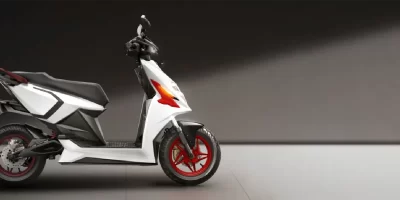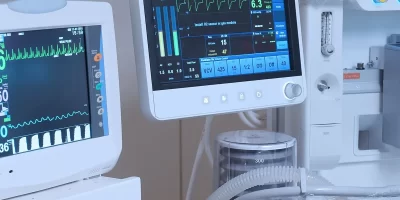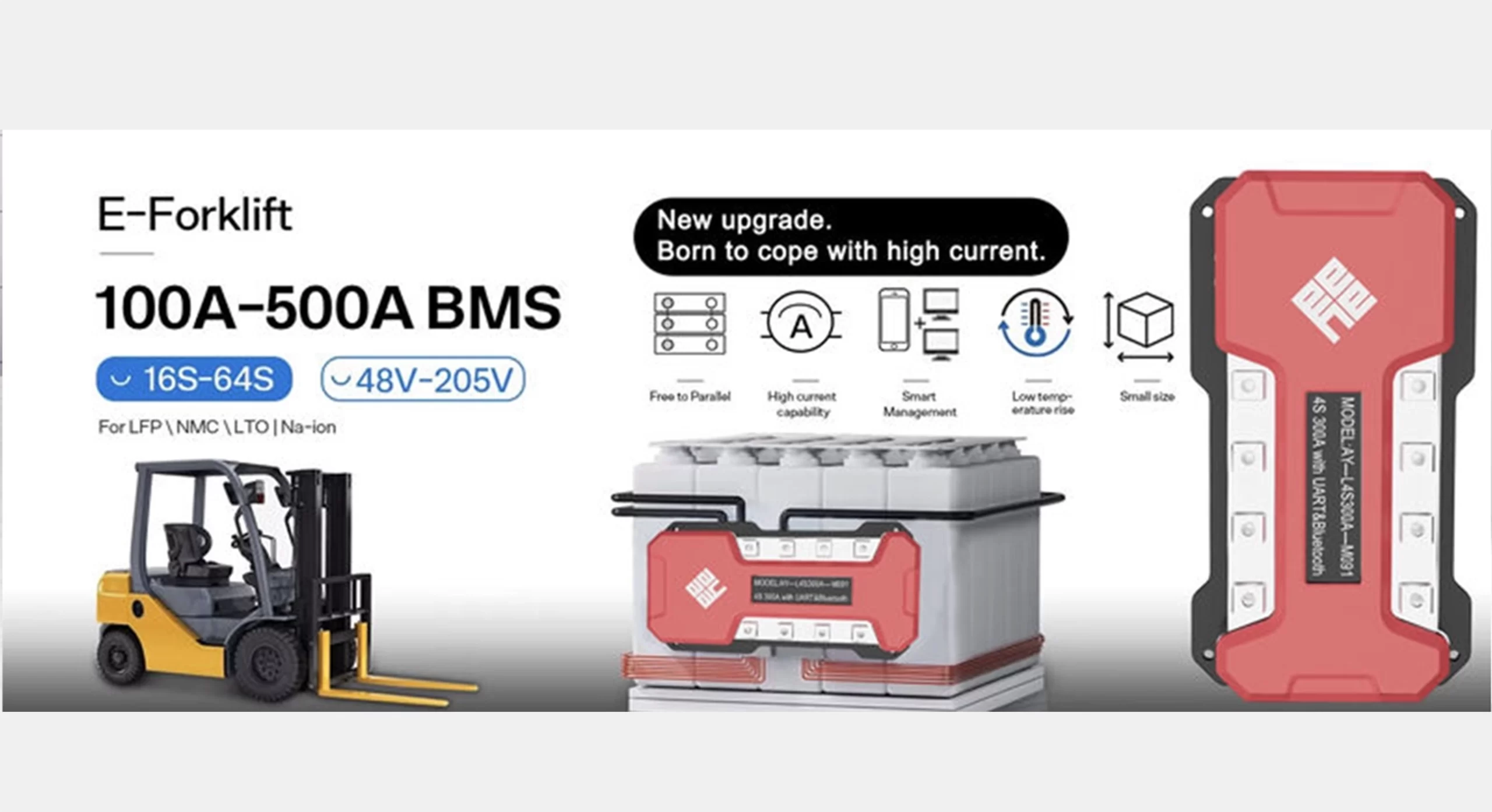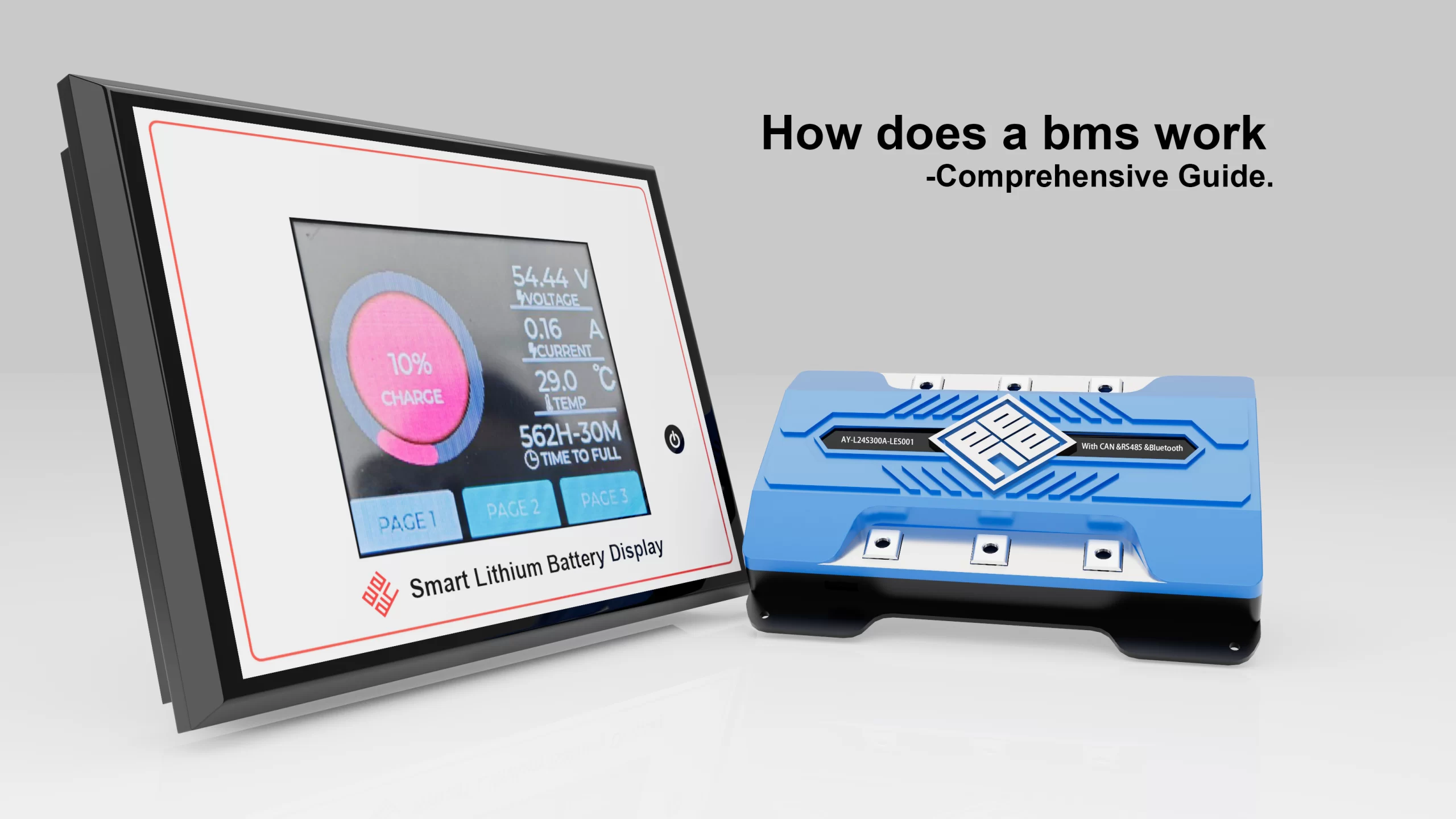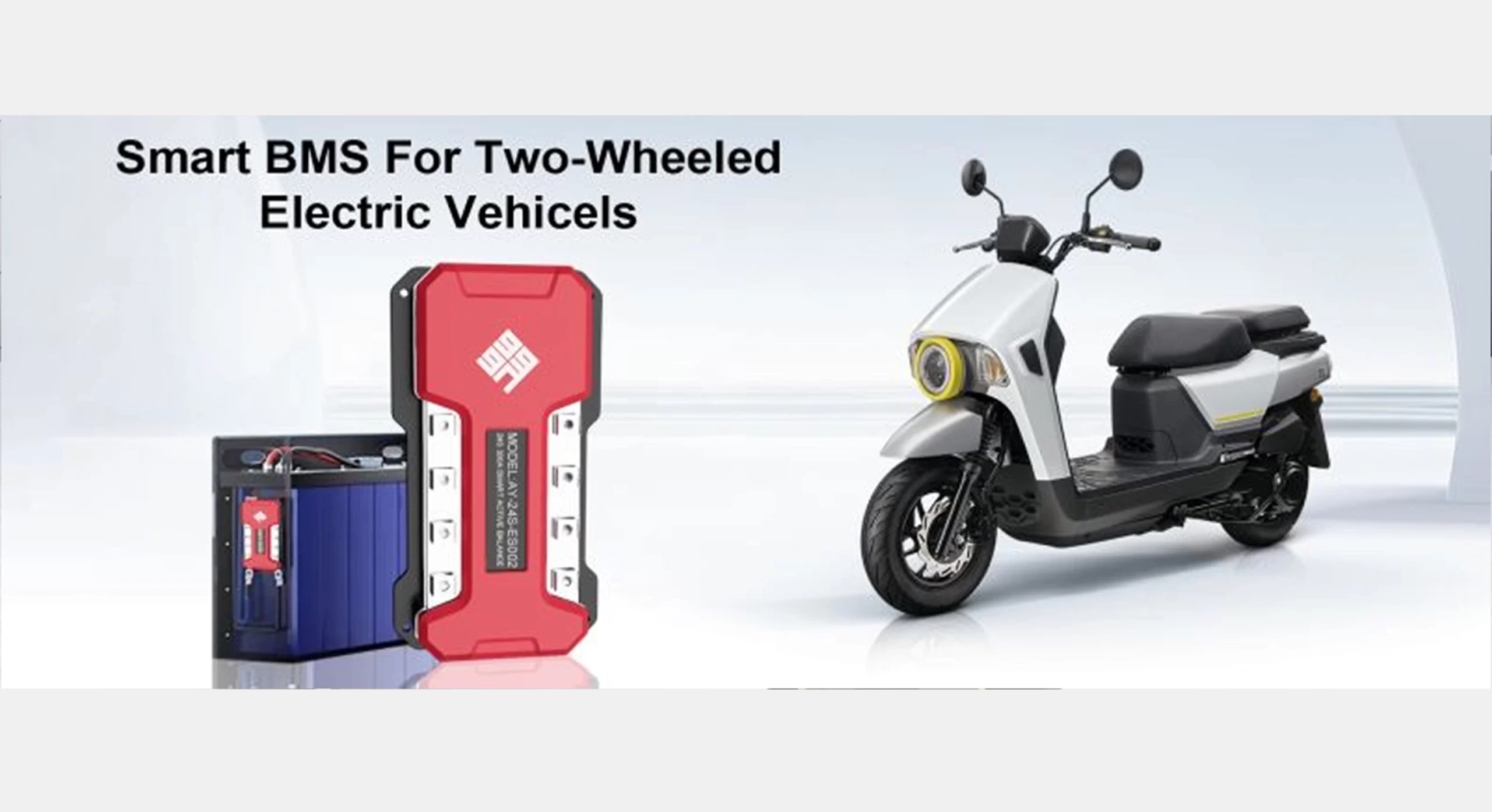Home About Us EVENTS & NEWS BMS Lithium Battery Explained: Key Differences from Traditional Protection Circuits
BMS Lithium Battery Explained: Key Differences from Traditional Protection Circuits
BMS Lithium Battery Explained: Key Differences from Traditional Protection Circuits
The phrase “BMS lithium battery” has become essential to innovation and safety in the rapidly changing field of energy storage. Lithium-based battery management systems, or BMSs, are intelligent systems made to maximize performance, guarantee safety, and prolong battery life. They are more than just protection devices. The definition of a BMS lithium battery system, its distinctions from conventional protection circuits, and the reasons it is essential to contemporary lithium battery applications are all covered in detail in this article.
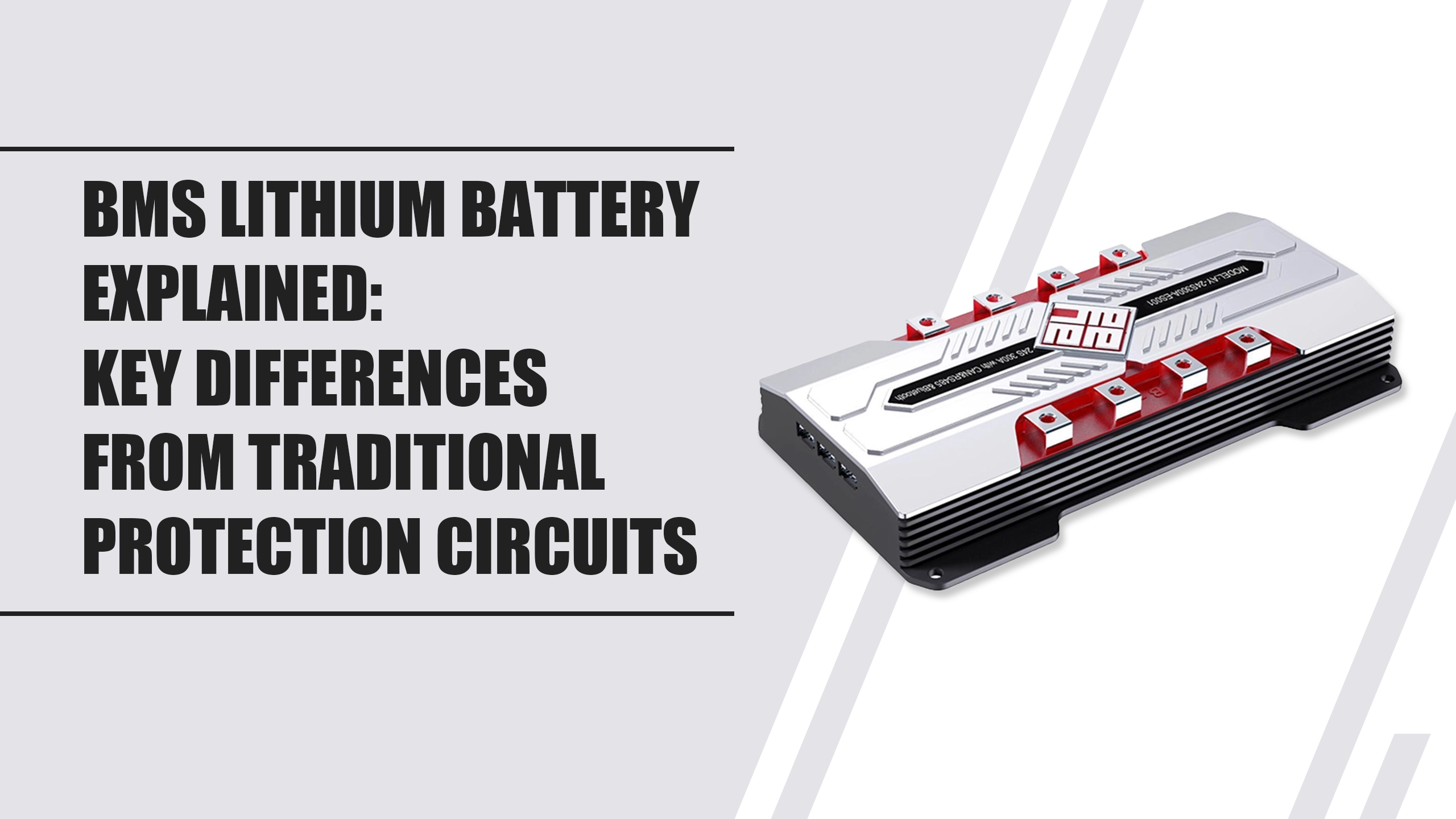
What Is a BMS Lithium Battery System?
A BMS lithium battery refers to an integrated management solution embedded within or connected to lithium-based battery packs. A BMS may prevent more than only overvoltage and short circuits, unlike basic protective circuits. Rather, it offers data analysis, temperature regulation, balancing, and real-time monitoring.
The core functions of a BMS lithium battery include:
- Voltage Monitoring: Tracks the voltage of each cell to avoid overcharge or over-discharge.
- Temperature Control: Monitors and manages heat distribution to prevent thermal runaway.
- Current Regulation: Controls charge/discharge current for optimal performance.
- State of Charge (SoC) Estimation: Calculates battery charge levels precisely.
- Cell Balancing: Ensures uniform performance across all battery cells.
A BMS lithium battery system is dynamic and data-driven, which allows for more intelligent energy management than traditional protection boards.
Internal Architecture and Modular Design
The structure of a BMS lithium battery comprises both hardware and software elements working in tandem. Key components include:
- Sensing Circuits: For detecting voltage, current, and temperature.
- Control Units (MCUs/CPUs): Execute algorithms and manage communication.
- Balancing Modules: For active or passive balancing.
- Communication Interfaces: Such as CANbus, SMBus, or Bluetooth.
Modular designs are used in contemporary BMS lithium battery systems, especially in bigger configurations such as electric cars (EVs) or energy storage systems (ESS). This enables management and protection that is scalable and customized for every application.
How BMS Lithium Battery Systems Work
The control algorithm is the key component of a BMS. This layer of software analyzes sensor data and modifies parameters as necessary. For example:
- Balancing Techniques: Whereas active balancing redistributes extra energy among cells, passive balancing releases it as heat. The BMS determines the best approach based on operational circumstances.
- Overcharge/Overdischarge Management: Automatically isolates faulty cells or shuts down the system.
- Thermal Management: Engages fans or cuts off the circuit when temperature exceeds safe levels.
These coordinated tactics guarantee that the battery functions within its safe and effective parameters.
Real-World Applications of BMS Lithium Battery Systems
The use of BMS technology spans a wide range of applications:
- Portable Devices: Smartphones, drones, wearables require miniature, integrated BMS solutions.
- Electric Vehicles (EVs): Robust, high-current BMS units monitor extensive cell arrays and provide advanced communication with vehicle ECUs.
- Energy Storage Systems (ESS): Commercial and residential power backups utilize scalable BMS lithium battery platforms.
- Power Tools: Require rugged, fast-responding BMS systems for reliability and safety.
These applications all show how versatile and essential modern BMS integration is.
BMS Lithium Battery vs. Traditional Protection Circuits
Traditional Protection Circuits:
- Perform only basic protections (overvoltage, undervoltage, short circuit).
- Lack real-time monitoring.
- No communication or data logging capabilities.
- Typically non-programmable.
BMS Systems:
- Provide advanced, real-time monitoring of multiple parameters.
- Include programmable logic and firmware updates.
- Feature communication protocols for integration into smart systems.
- Offer thermal management and balancing capabilities.
Therefore, compared to static protection boards of previous generations, the BMS system is a clever, flexible solution.
Key Features of a High-Quality BMS Lithium Battery
When choosing a BMS, look for these essential features:
- Precision Monitoring Chips: Ensures accurate readings.
- Redundancy Mechanisms: Dual-layer protection for critical applications.
- IoT Integration: Supports remote monitoring and control.
- Firmware Update Capability: Enables future-proofing and customization.
- Multi-Chemistry Support: Can adapt to Li-ion, LiFePO4, Li-polymer, etc.
Maintenance and Care for BMS Systems
To ensure long-term performance:
- Inspect regularly: Check for corrosion or loose connections.
- Calibrate periodically: Voltage and SoC estimations need recalibration over time.
- Update firmware: Keep the BMS lithium battery updated for optimal performance.
- Avoid extreme environments: High humidity or temperature can degrade performance.
Choosing the Right Partner for BMS Lithium Battery Solutions
When designing or upgrading your lithium battery application, selecting the right BMS provider is essential.
Shenzhen Ayaa Technology Co., Ltd. stands out in the global market as a leader in BMS innovation. With over 20 years of combined R&D and engineering experience, Ayaa offers:
- Customizable BMS solutions from 1S to 35S configurations.
- Support for high-current systems up to 320A.
- Integration with CANbus, SMBus, and Bluetooth modules.
- Advanced protection features including active balancing and thermal regulation.
- Applications in EVs, medical devices, robotics, drones, and more.
Ayaa Technology’s BMS solutions are trusted globally by energy system integrators and device manufacturers looking for robust, intelligent, and scalable battery protection systems.
FAQ
Q: What is BMS in lithium battery?
A: Definition: A battery management system (BMS) is a piece of technology used to monitor a battery pack, which is a collection of battery cells electrically arranged in a row x column matrix, in order to deliver a specific range of voltage and current for a predetermined amount of time under anticipated load conditions.
Q: Do you really need a BMS for lithium batteries?
A: Any Li-ion battery, LTO, or other chemistry always requires a BMS. Li-ion cells should never be operated unprotected; doing so poses a risk to people and property, and at best to the cells themselves.
Q: How do I choose the right BMS?
A: You can choose a BMS that best suits your requirements by taking into account variables like voltage, cell count, amp ratings, and compatibility with various battery types. Before choosing, don’t forget to do your homework and fully comprehend the needs of your battery system.
The BMS is far more than a safety circuit. It is the brain of the lithium energy system, ensuring peak efficiency, system longevity, and user safety. As battery technologies continue to evolve, so must the intelligence behind them. Choosing the right BMS partner is not just a technical decision—it’s a strategic one.
With Shenzhen Ayaa Technology Co., Ltd., you gain access to proven expertise, global reach, and cutting-edge BMS solutions that can empower your innovation and safeguard your investment.
Whether you’re developing consumer electronics or grid-scale energy storage systems, make sure your batteries are powered and protected by the best.





